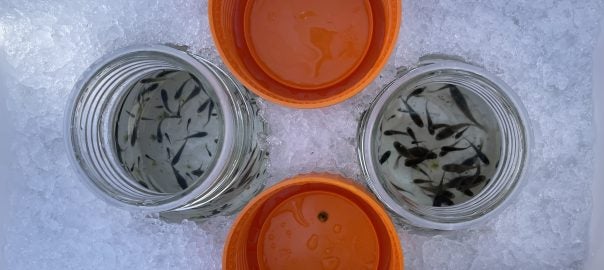Dietary exposure represents a critical pathway for toxic environmental chemicals to enter aquatic organisms. Research in our lab has focused on developing a Perspective on how transport proteins in epithelial tissues function. We specifically examine multiple organ systems, particularly gills and intestines, to understand how these proteins facilitate the movement of chemicals through the digestive system and to other tissues in aquatic organisms.
Our lab is particularly interested in characterizing expression patterns of various transporter protein families such as ATP Binding Cassette (ABC) proteins and Solute Carrier (SLC) proteins in select organisms. We seek to identify compounds that can alter protein expression, act as substrates, or even inhibit the function of these proteins. These compounds include biocides, commercial and industrial synthetic chemicals, pharmaceuticals, biotoxins, and endogenous compounds. Ultimately, this project will inform future research on how ingested environmental toxicants are processed by transport proteins in aquatic organisms.
Building on these findings, our future work will focus on:
We will investigate drug transporter interactions with biotoxins such as microcystins (cyclic peptides produced by certain algae during harmful algal blooms) and domoic acid (produced by diatoms and often retained in aquatic organisms). These compounds are potentially detrimental to the health of both aquatic organisms and people who consume contaminated fish and shellfish. We hope to examine the kinetic behavior of these compounds in select model organisms relevant to aquaculture as well as how exposure to other non-toxic compounds may modulate those kinetics. Our goal is to identify compounds that enhance the depuration rates of harmful biotoxins by fish and shellfish, thereby improving the safety of their consumption.
